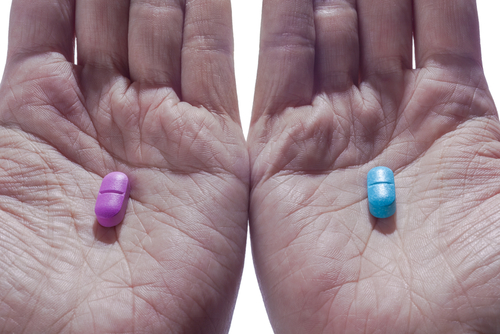Cannabinoid, Dronabinol, Seen as Long-term Treatment Option for Neuropathic Pain in Phase 3 Study
Written by |

Multiple sclerosis (MS) patients being treated with dronabinol, a cannabinoid, do not show signs of drug abuse or dependency, leading researchers to conclude it has potential to be a long-term and safe treatment option for neuropathic pain.
The issue of pain management, specifically central neuropathic pain (CNP), in patients with autoimmune disorders such as MS is largely unresolved. Dronabinol, whose active compound comes from medical cannabis, is often used to ease nausea and vomiting caused by chemotherapy. It may also treat chronic pain and has been investigated in a few clinical trials.
But its use remains controversial because of concerns with, and lack of data about, its psychotropic side effects and potential for dependency.
Researchers behind the study “Dronabinol Is a Safe Long-Term Treatment Option for Neuropathic Pain Patients,” published in the journal European Neurology, conducted a study in Germany to test the long-term effects of dronabinol in treating MS patients with CNP.
The Phase 3 clinical trial (NCT00959218) involved 240 patients with moderate to severe central neuropathic pain. They were randomized to receive dronabinol or placebo for 16 weeks, followed by a 32-week open-label period in which all enrolled were given dronabinol daily as an oral solution (mean dose, 12.7 ± 2.9 mg). A subgroup of 100 patients then continued on treatment as part of a long-term safety extension, receiving treatment for a total of 119 weeks.
The trial’s primary endpoint was improvement in pain intensity using an 11-point numerical rating scale, with 0 being no pain and 10 the strongest pain.
Results did not show a significant reduction in pain compared to placebo over the initial 16-week period (a mean pain intensity change of 1.92 and 1.81 for drug and placebo, respectively). Pain reduction was, however, clinically relevant in both groups and pain intensity remained at a low level (2.5-3.8) throughout the long-term follow-up period.
Serious adverse events and reactions were overall very low, although patients receiving dronabinol experienced more adverse events and reactions during the first 16 weeks of treatment compared to controls. During the follow-up period, patients who switched from placebo to dronabinol experienced more adverse events.
Neither group showed clinically relevant changes to blood pressure, heart rate and weight. Most also did not show signs of withdrawal reactions after stopping the medication. A total of 10 patients reported sleep disturbances, excitability, nervousness or an increase of neuropathic pain, while signs of possible dependency were only seen in one patient.
“Overall, this trial demonstrated the long-lasting therapeutic potential, the good tolerability and favourable safety profile of dronabinol — especially in terms of drug abuse and dependency,” the researchers wrote.
“Although the statistical proof of efficacy for dronabinol versus placebo treatment is pending, physicians should consider the potential benefits of the multifactorial effects of dronabinol,” they concluded.


